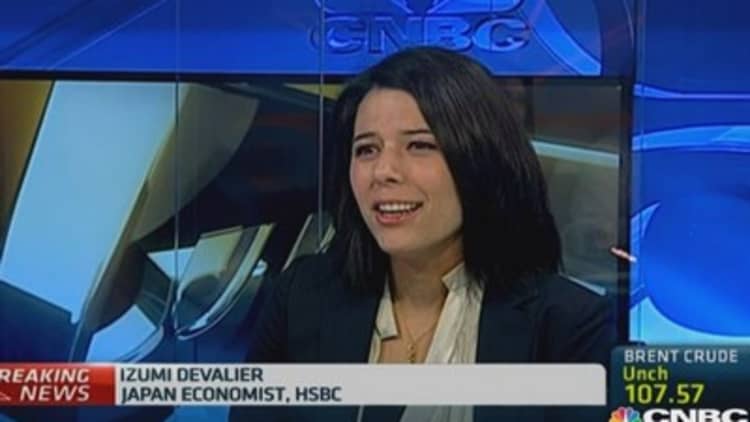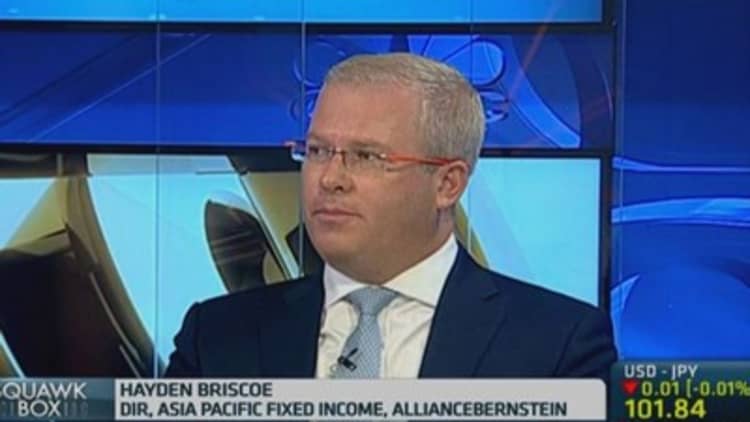
A flurry of economic data out of Japan on Tuesday showed an improving labor market and an encouraging household spending picture, alleviating fears over the impact of an increase in the national sales tax.
Household spending fell 3 percent from the year ago period, better than with the 3.8 percent drop forecast by Reuters and after the 8 percent slump in May.
But on a month on month basis, it rose 1.5 percent. While short of analysts' 2.2 percent forecase, it's still a reversal from the contractions seen in April and May.
Read MoreWhy this Japan earnings season is important
Retail sales dipped 0.6 percent on an annual basis, slightly worse than than expected dip of 0.5 percent and after dropping 0.4 percent in May.
Japan raised its sales tax to 8 percent from 5 percent in April, in a bid to reduce the country's hefty debt pile.
In other data, the availability of jobs in Japan held at its highest in more than two decades. The jobs-to-applicants ratio rose to 1.10 in June from 1.09 in the previous month, data from the labor ministry showed, matching a high last seen in June 1992.
While jobless rate for June unexpectedly rose to 3.7 percent from 3.5 percent in May, labor shortages in construction and retail suggest the jobless rate is not likely to rise sharply.
The yen strengthened modestly against the greenback to 101.80 following the data.
Analysts say economic readings in the coming months will determine if the government will step in with more stimulus.
Read MoreJapan inflationquickens on back of sales tax hike
"I do think that second quarter GDP is going to look really, really bad. If it looks like activity hasn't picked up in July and we're still seeing some weakness in exports, the government will try to put together another fiscal stimulus package," Izumi Devalier, Japan economist at HSBC, told CNBC.
"[However] the Bank of Japan will hold on to that 2 percent target for as long as possible, in my opinion," she added.

According to Hayden Briscoe, director of Asia Pacific Fixed Income at AllianceBernstein, inflation data is more important to the central bank in terms of further support measures.
Nationwide core consumer price index (CPI) rose 3.3 percent in June year on year, according to data last week released last week. Stripping out the sales tax effect, the June core CPI rose 1.3 percent on year. The BOJ has an inflation target of 2 percent by next year.
"We are focused on the inflation data and we think the BOJ is going to come back on the table," said Briscoe.
Read MoreJapan's streakof trade deficits hits two-year mark
"The moment they passed the baton to Abe to say: 'shoot your third arrow, get it right' then it's going to come back to them because inflation is going to come off and we're going to be around half percent or 1 percent which is below their target. That's going to bring them back to the table, and will be a shock to the markets to see more QE coming from BOJ and that's going to get dollar yen moving to weaker side," he added.
The BOJ has maintained its pledge to increase base money by 60-70 trillion yen ($592-$691 billion) per year via aggressive asset purchases, mostly in Japanese government bonds.

